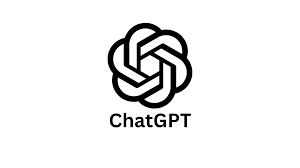Artificial Intelligence is revolutionizing marketing, but like any other marketing endeavor, measuring the success of your AI-powered campaign is crucial. It helps you understand the effectiveness of your strategies, the return on your AI investments, and areas for improvement. This section will delve into understanding the metrics and Key Performance Indicators (KPIs) for your AI-powered marketing campaign.
1. Understanding Metrics and KPIs
Metrics and KPIs are quantifiable measurements used to track and assess the status of a specific business process. In the case of AI-powered marketing campaigns, these metrics can vary depending on your campaign’s objectives. For instance, if you’re using ChatGPT for content creation, engagement metrics like likes, shares, and time spent on the page might be important. If you’re using it for customer service, response time, resolution rate, and customer satisfaction might be your key metrics.
2. Engagement Metrics with ChatGPT
If you are utilizing ChatGPT for content creation, social media posts, or customer interaction, measuring engagement is vital. The engagement metrics include likes, shares, comments, click-through rates, and the amount of time spent on the page.
Sample prompt: “ChatGPT, generate a report of engagement metrics for the blog posts you have created last month.”
3. Customer Satisfaction Metrics with ChatGPT
When leveraging ChatGPT for customer service, customer satisfaction becomes a vital KPI. This can be measured through customer surveys, net promoter scores, or sentiment analysis of customer interactions.
Sample prompt: “ChatGPT, conduct a sentiment analysis of the customer interactions over the past week.”
4. Conversion Metrics with ChatGPT
If you’re using ChatGPT to drive sales through persuasive copywriting or personalized recommendations, conversion metrics become important. These could include click-through rates, conversion rates, average order value, and return on ad spend.
Sample prompt: “ChatGPT, calculate the conversion rate for the product descriptions you generated last month.”
5. AI Performance Metrics
Apart from the marketing KPIs, it’s also important to measure the performance of your AI model. This includes accuracy of the generated content, percentage of queries successfully handled, or the level of personalization achieved.
Sample prompt: “ChatGPT, generate a report detailing the accuracy of your content generation over the past quarter.”
6. Deep Dive into Metrics and KPIs
Understanding and choosing the right metrics and KPIs is only the first step. It’s important to continuously monitor these and adjust your strategies based on the results. Remember, the objective of using AI in marketing is not just to automate tasks but to enhance your overall marketing outcomes.
In conclusion, measuring the success of your AI-powered marketing campaign is essential to understand its effectiveness and return on investment. Depending on your objectives, you should choose the right metrics and KPIs, which could range from engagement and conversion metrics to customer satisfaction and AI performance metrics. Continuous monitoring and adjustment based on these metrics can help you optimize your AI-powered marketing strategies and achieve better results. With ChatGPT, not only can you automate tasks but also measure their effectiveness efficiently.
Subscribe to our email newsletter to get the latest posts delivered right to your email.

